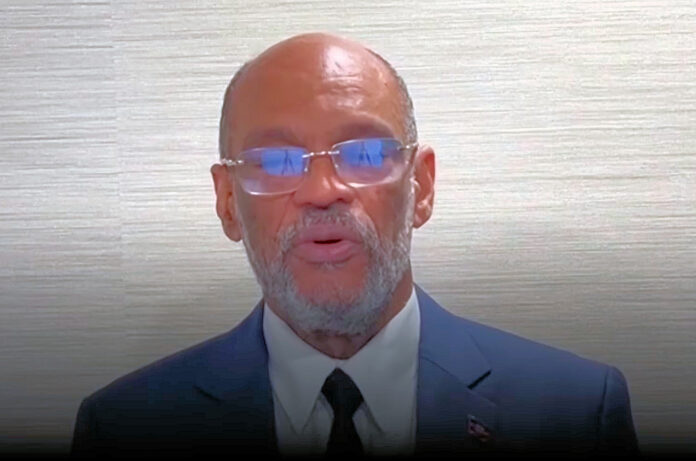
(Français)
Ariel Henry, 74, once the king on Haiti’s chessboard, has now become a pawn of the U.S. in its increasingly desperate bid to send a proxy intervention force into the rebelling Caribbean nation. This is the picture Haïti Liberté has received from a well-placed source with intimate access into and knowledge of the U.S. government.
Washington is now scrambling for way to send a “quick reaction force” into Haiti, and Ariel Henry remains one of their most important bargaining chips, the source says.
After his chartered jet landed in Puerto Rico on Mar. 5, the U.S. Federal Bureau of Investigation (FBI) interrogated Henry for three days, according to our source. (Within 48 hours, the U.S. deported to Egypt the four Egyptian mercenaries – previously mistakenly identified as Kenyans – who were acting as Henry’s security detail, our source said.)
The first day of the FBI’s interrogation was devoted to questioning Henry about his role in the Jul. 7, 2021 assassination of Haitian President Jovenel Moïse, our source said. The remaining two days focused on Haiti’s Feb. 23, 2024 payment of $500 million to Venezuela to pay off the $2.3 billion PetroCaribe loan account established between the two countries in 2008. (Henry fainted during the questioning on Mar. 7, the source said.)
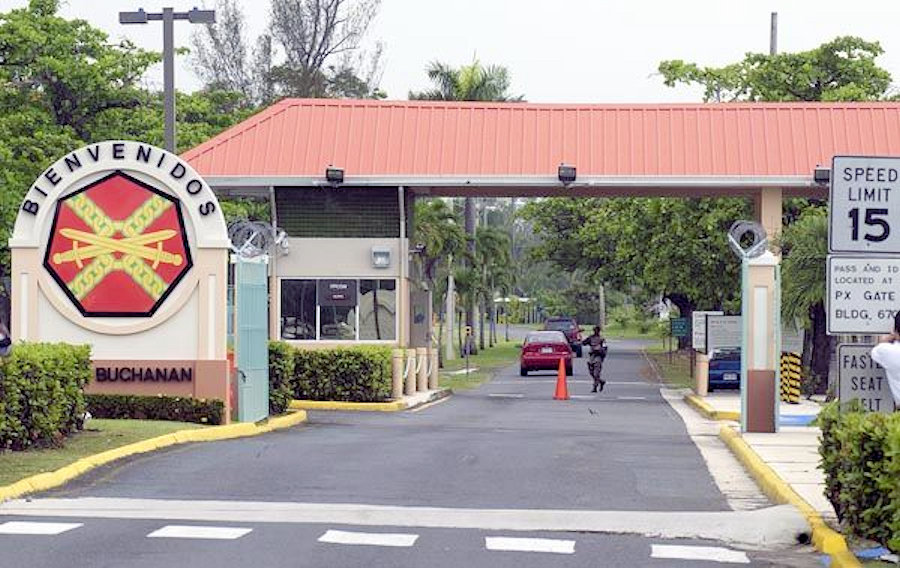
Under the agreement, Venezuela wrote off the remaining $1.8 billion Haiti owed the country.
The deal was brokered by Paris-based Global Sovereign Advisory (GSA), founded by Anne-Laure Kiechel. Temir Porras, GSA’s Managing Director and lead agent for Latin America, negotiated with Henry.
The FBI believes that Henry received a $138 million kick-back for negotiating the deal, our source said.
Due to the FBI’s findings, the Diplomatic Secret Service (DSS) agents handling Henry have placed him under de facto house arrest on the U.S. Army’s Fort Buchanan in Guaynabo, Puerto Rico. There are six agents guarding him, and he has been in ill health, even vomiting, according to one of the health professionals tending to him.
He has been moved to the Army base from his original residence at San Juan’s Isla Verde Marriot hotel in part to prohibit media access to him, our source said.
A second reliable source spoke to a senior State Department official who told him that the Biden administration does not want to prosecute Henry, fearing that it will undermine Biden’s 2024 re-election bid. The administration is extremely anxious to “stabilize the situation” in Haiti, the official said.
The State Department wants to deliver Henry to a new Haitian government of its choosing. U.S. Secretary of State Anthony Blinken tried to concoct a “transitional presidential commission” (CPT) in Jamaica on Mar. 11. A few CARICOM leaders, particularly Guyana’s president Irfaan Ali and Jamaica’s Prime Minister Andrew Holness, hosted and fronted for the charade.
Blinken’s formula was a nine-member CPT, with seven members having voting powers, while Haiti’s “civil society” and “religious sector” would be observers.
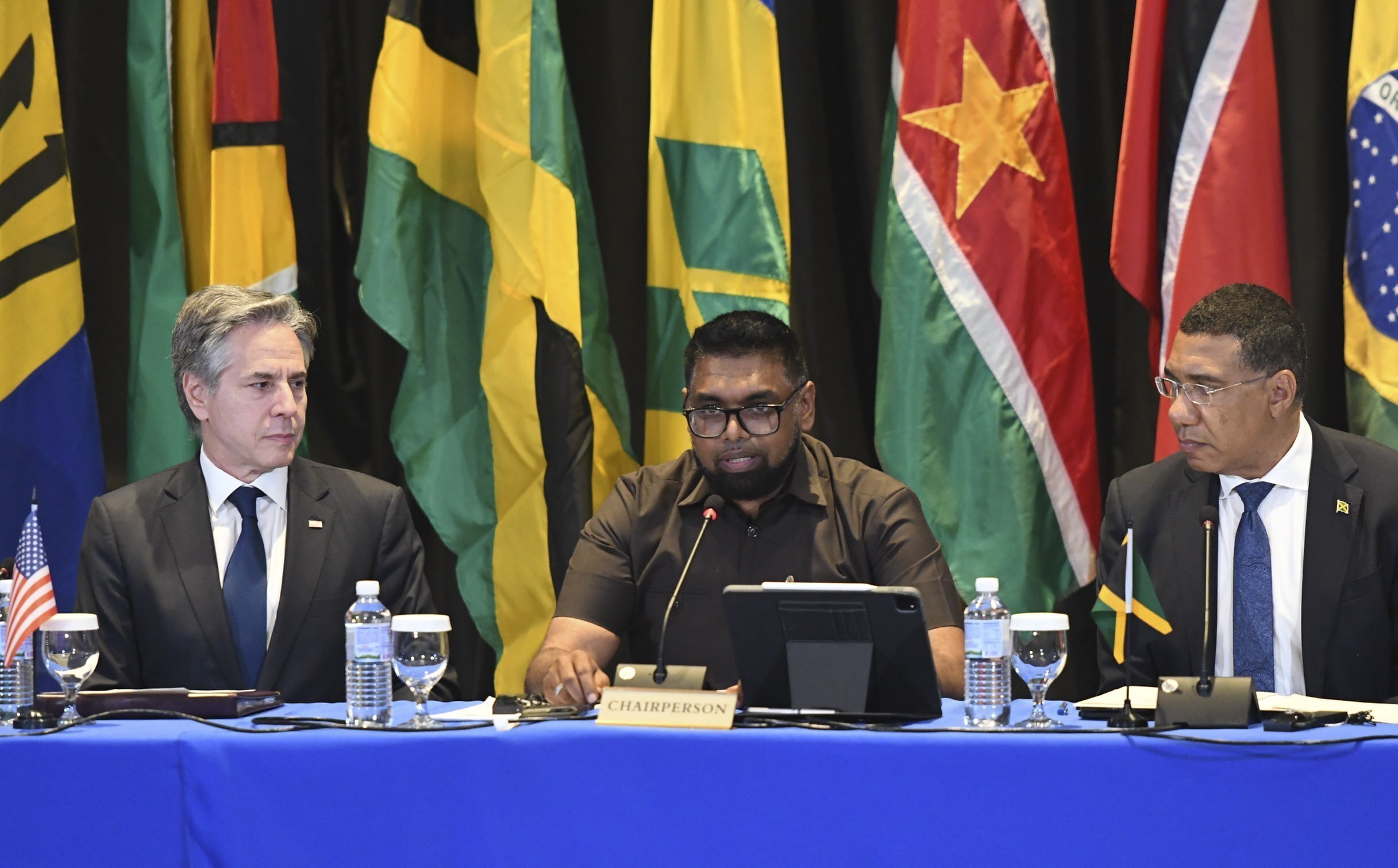
The proposed voting members were:
1) the Pitit Desalin (Dessalines’ Children) party of former Lavalas Family party senator Moïse Jean-Charles. The party offered no representative.
2) the Montana Accord, founded Aug. 30, 2021, a group of liberal opposition “civil society” groups, political parties, individuals, and “grassroots organizations.” Montana offered former Central Bank governor Fritz Alphonse Jean.
3) EDE/RED, the Engaged for Development party led by Jovenel Moïse’s former interim Prime Minister Claude Joseph and Democratic Resistance platform of about 40 parties including former Senator Youri Latortue’s Haiti in Action (AAA) and former presidential candidate Mirlande Manigat’s National Assembly of Progressive Democrats (RNDP). EDE/RED presented Marie Ghislaine Mompremier, the former Social Affairs Minister in 2003 under President Aristide and Women’s Affairs Minister in 2021 under President Jovenel Moïse.
4) The Fanmi Lavalas (Lavalas Family) party of former president Jean-Bertrand Aristide. Lavalas’ representative was long-time party actor Leslie Voltaire.
5) The Jan. 30 Collective, a coalition of disparate groups like MOPOD, Clarence Renois’ UNIR, former Presidential candidate Jude Céléstin’s LAPEH, the Struggling People’s Organization (OPL), Pitit Desalin and GREH as well as the former President Michel Martelly branch of the Haitian Bald-Headed Party (PHTK), headed by Line Balthazar. Their representative was OPL leader Edgar Leblanc.
6) The Dec. 21 Agreement, signed in 2022, are the political parties and “civil society” organizations established by and allied with Ariel Henry. Their representative is former Lavalas senator of the Grande Anse Department Louis Gérald Gilles.
7) The Private Business Sector, represented by such business alliances as the Haiti Tourism Association (ATH), the Association of Haitian Industries (ADIH) and the Western Chamber of Commerce (CCIO) and the American Chamber of Commerce (AmCham – Haiti). Their representative was businessman Laurent Saint-Cyr, who previously was part of the troika that headed Henry’s High Transition Council (HCT), established on Dec. 21, 2022.
However broad it may appear, Blinken’s presidential commission stands absolutely no chance of success because Washington demanded that its members must support UN Security Council Resolution 2699, which endorses (but does not oversee) a foreign military intervention into Haiti called the Multinational Security Support Mission (MSS). The Haitian people overwhelmingly reject the deployment of this Kenyan-led (as currently planned) force and will definitely not accept any “transitional presidential council” that agrees with it.
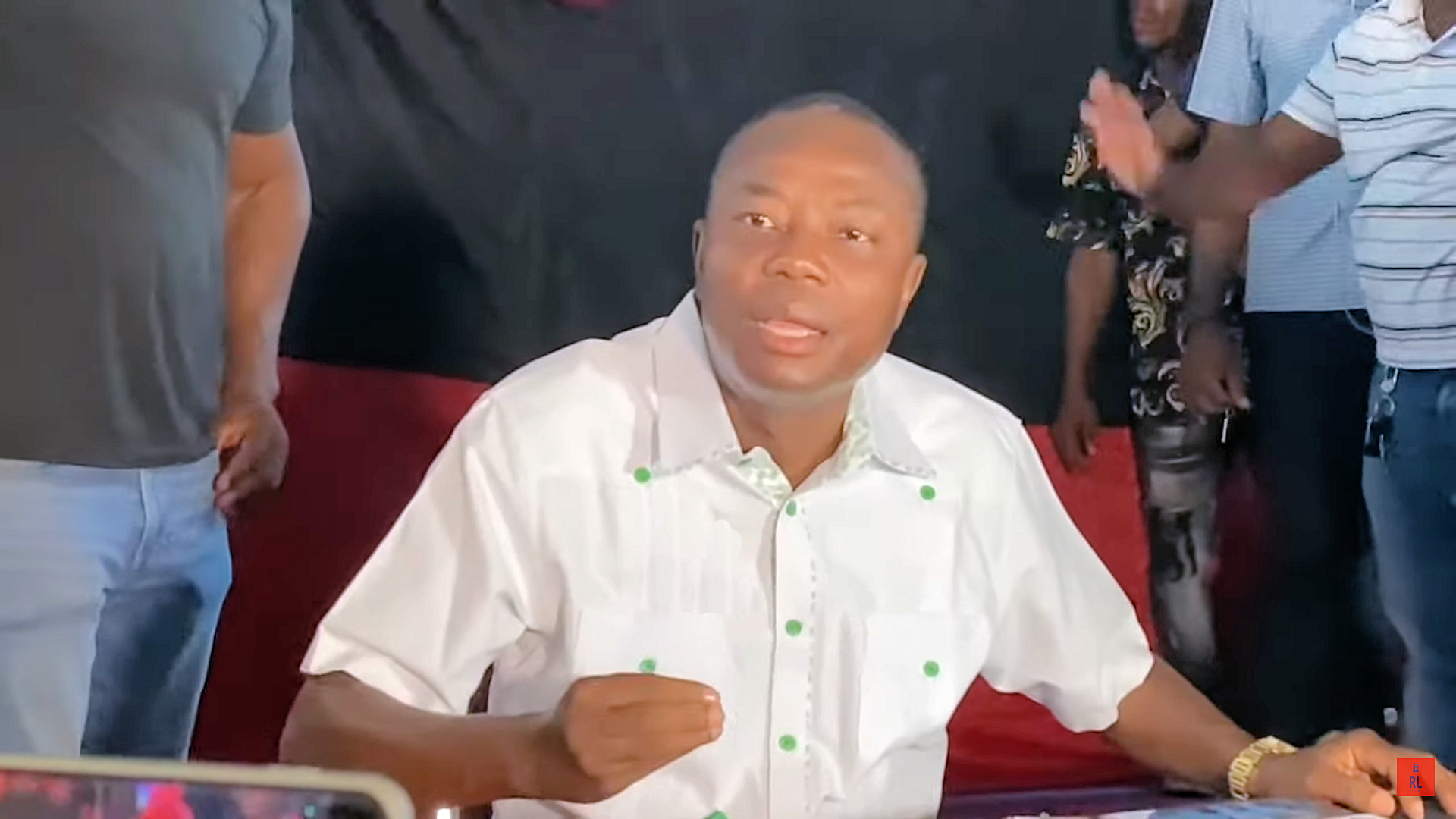
As a result, Blinken’s formula went over like a lead balloon. “Haiti transitional council plan appears to crumble after political parties reject it,” reported France 24 two days after the fiasco.
“We reject CARICOM’s proposal,” Moïse Jean-Charles vehemently told a packed Mar. 13 press conference in Port-au-Prince. “We have overthrown [Henry’s] government. Does it make sense for us to now sit down at a table and negotiate with it?”
Two weeks previously, the “Heads Together to Save Haiti” alliance (Tèt Ansanm Pou Sove Ayiti) formed between former Lavalas senator Moïse Jean-Charles and former Senator-elect and a 2004 coup d’état leader Guy Philippe had proposed a presidential council of Guy Philippe (President), former Supreme Court judge Durin Junior Duret (Member), and Françoise Saint-Vil Villier (Member), presented as a representative of the “religious, women’s, and univerity sectors” by the “Solidarity-Based Joint Proposal of Healthy, Patriotic, and Progressive Haitian Forces for an Urgent Exit from the Crisis Around Prime Minister Ariel Henry’s Resignation” proposal. The document outlines the provisional government’s composition, program, and goals. The swearing-in of this three-member council is reportedly imminent.
Despite the near universal sentiment rejecting Washington’s MSS-backed CPT, Blinken was still defending it as late as Mar. 15.
“This was a Haitian-led agreement,” Blinken told a news conference in Austria, using the Montana Accord’s long-time slogan and saying the CPT would “take charge soon.”
“Every single day, there are challenges to that process — political challenges, security challenges — and we are working to address them,” he said.
Despite such feigned confidence, on Mar. 19, a meeting was held by officials in the State Department’s Western Hemisphere Division headed by Brian Nichols, our well-placed source said.
Recognizing that the CPT may be doomed and that they were racing the clock and the Moïse/Philippe provisional council’s swearing-in, the officials played with the idea of swearing in a judge – the name floated was Judge Walther Wesser Voltaire, who recently finished his investigation of Jovenel Moïse’s murder – to act as an interim leader so Washington could land a quick reaction force under the MSS flag.
A key to selling either the CPT or a judge-led interim government would be the delivery to Haiti for judgement of Ariel Henry, a would-be sacrificial lamb calculated to assuage the people’s anger and sell Washington’s chosen leadership clique.
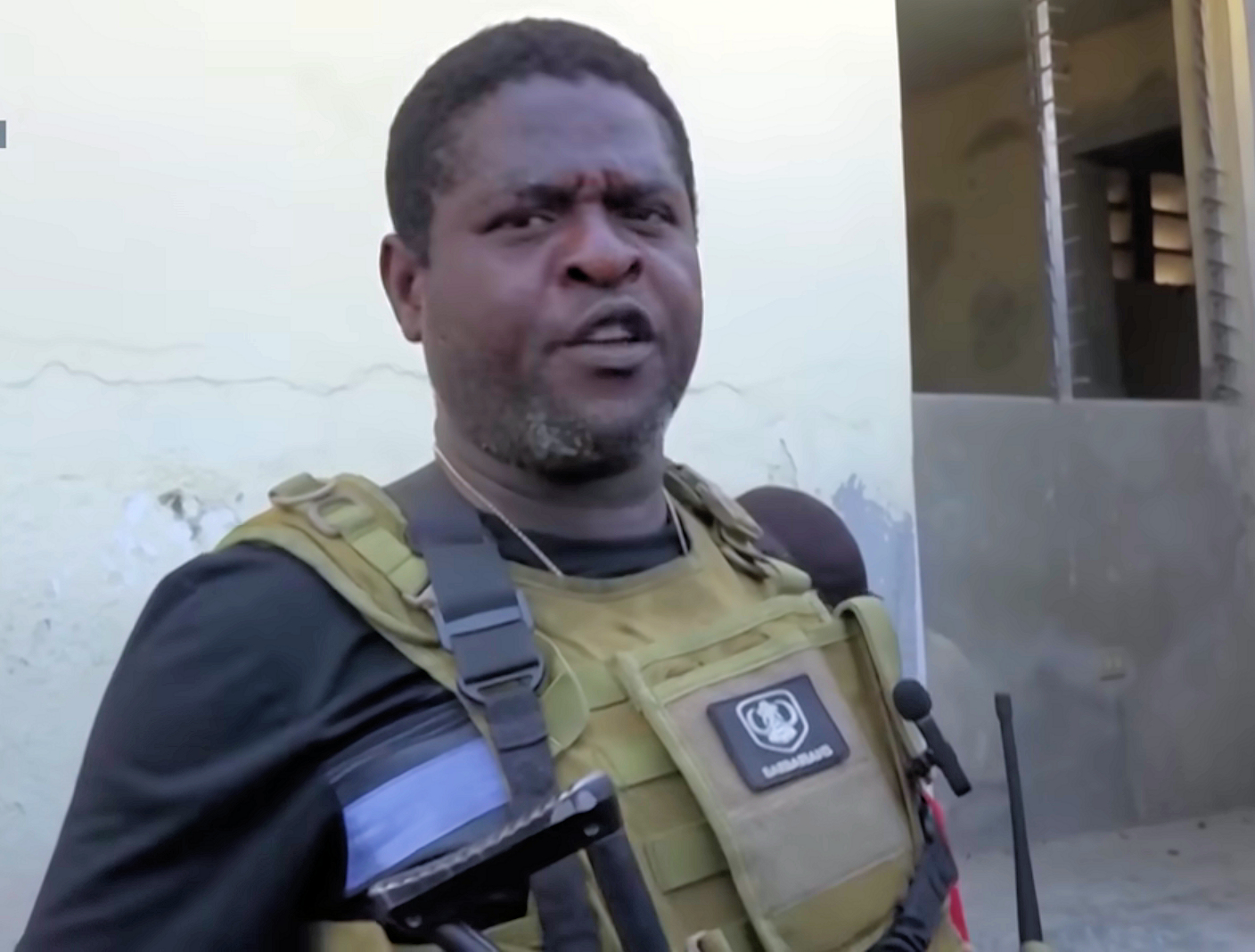
Our sources’ accounts belie an anonymous “senior U.S. official” who told Reuters that “Henry was free to remain in Puerto Rico or travel elsewhere.”
Haïti Liberté requested confirmation of or comment on our story from both the FBI and the State Department. At press time, the FBI had not replied, but the State Department did.
“These claims are false,” the State Department Press Office wrote. “We would discourage sharing sensational claims on social media before first seeking verification from credible sources. We refer you to Prime Minister Henry for updates on his travel plans.”
Haiti Liberté subsequently called and left text messages for Dr. Ariel Henry at two phone numbers he has previously used asking for his response or to contact us. We have received no reply at press time.
Should Washington fail to install its replacement puppet government, it may also seek to woo the apparently anti-imperialist and impending Moïse/Philippe provisional government.
In an interview with Fox News, former U.S. Ambassador to Haiti Pamela White said that she had spoken to Philippe. “He is someone that can help with the situation, and I believe we should be dealing with him,” she said. “We dealt with the Duvaliers for 20 plus years. I think that we could certainly deal with Guy Philippe. He’s charismatic, he’s bright, he’s articulate, and he has many, many people who are following him.”
On Mar. 19, Haïti Liberté reached Jimmy Cherizier, the leader and spokesman for the Viv Ansanm (Live Together) coalition of armed groups which effectively drove Ariel Henry from power after he left for Kenya on Feb. 27.
“We are not aware or part of the plans for the swearing-in of the provisional government proposed by the coalitions of Guy Philippe and Moïse Jean-Charles,” Cherizier said. “However we have no problem with the council that would be headed by Guy Philippe because we are fighting for the same things, we have the same vision for Haiti’s future, and we hope he keeps his vision. We in Live Together, Haiti’s armed groups who are now all united, will not fight his proposed installation, but we will fight the presidential council cooked up last week in Jamaica by foreign governments with a bunch of corrupt politicians who have not a patriotic bone in their bodies. If they try to take power, even with the support of foreign troops, we will fight them to the very last drop of our Dessalinien blood.”
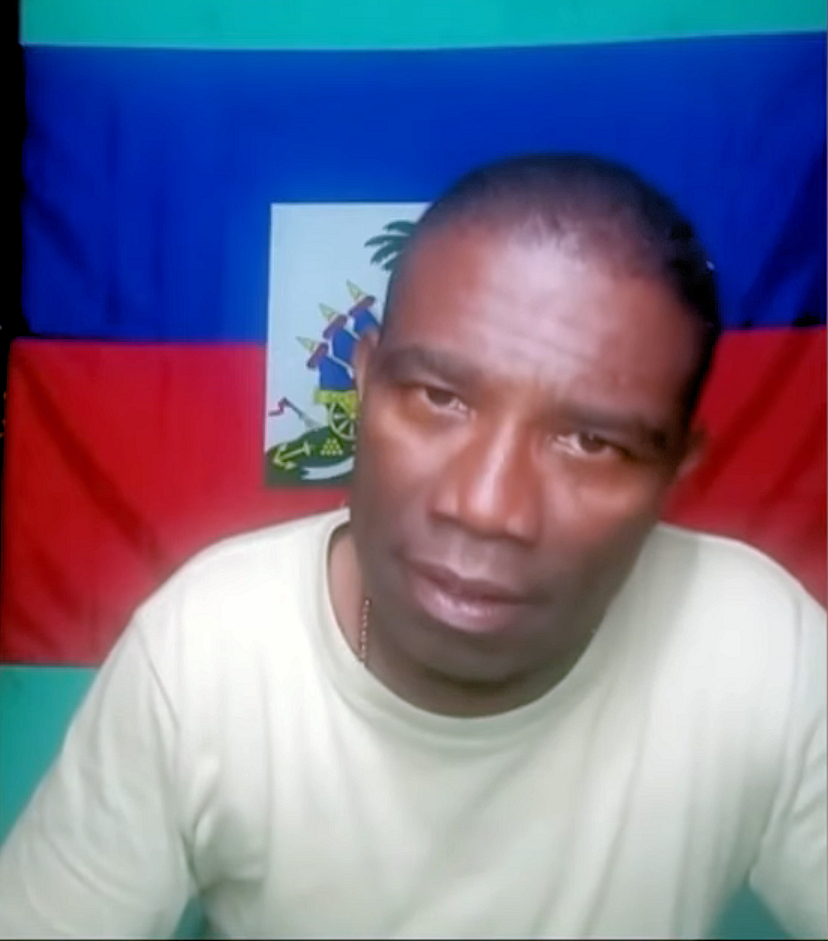
Haïti Liberté also asked Guy Philippe the same day by telephone if he would agree to a foreign military intervention by a force like the MSS if the U.S. offered to hand over Ariel Henry as a peace gesture. “Ariel Henry is not the problem,” Philippe replied. “He is just a piece of the bad guys’ team. These guys are trying to take back power so they can keep destroying Haiti.”
Pressed if he would accept a foreign military intervention, Philippe responded: “Haiti is a sovereign country… No patriots, no real Haitians would like any foreign nations to invade…. What have previous interventions brought to Haiti? More misery, cholera, ebola, AIDS. We don’t need military intervention. We need help… We don’t need soldiers here. The Haitian police force and army are enough and are trained enough to end that…. [Foreign troops] will come here to keep the status quo and to help the rich. They will come here to make sure that rich countries keep stealing everything we have in Haiti. That’s what they’re here for. Not for us…”
Asked if he thought the Haitian people could stop the intervention. “There is no weapon more powerful than the people’s will. If Haitian people want to resist, we will resist together. If they have to kill us together, they will kill all of us. But we can resist, and we will. Certainly we will.”
Indeed, if all else fails, Washington appears prepared to send its own troops: “U.S. Southern Command (SOUTHCOM) is prepared with a broad range of contingency plans to ensure the safety and security of U.S. citizens in Haiti,” SOUTHCOM said in a statement.
Ariel Henry may soon join the ranks of other former U.S. allies who were dumped, betrayed, or killed by Washington, like Osama Bin Laden, Saddam Hussein, Manuel Noriega, Rafael Trujillo, and, yes, even likely Jovenel Moïse.
As the late Henry Kissinger is once reported to have said: “It may be dangerous to be America’s enemy, but to be America’s friend is fatal.”












[…] flocked to the “transitional presidential council” (CPT) that U.S. Secretary of State Anthony Blinken cooked up with the aid of a few lackeys from CARICOM in Kingston, Jamaica on Mar. 11, all have the same class […]
[…] who have flocked to the “transitional presidential council” (CPT) that U.S. Secretary of State Anthony Blinken cooked up with the aid of a few lackeys from CARICOM in Kingston, Jamaica on Mar. 11, all have the same […]